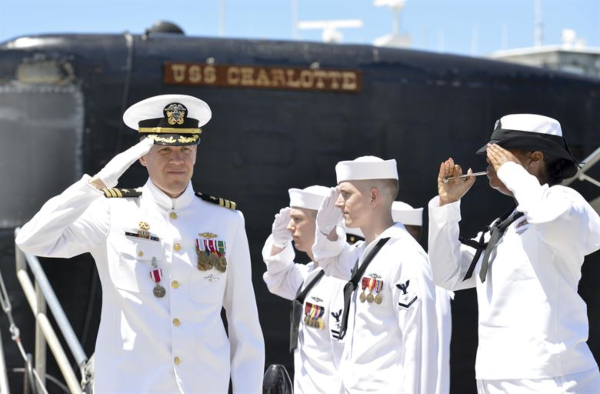The Navy Nuclear Propulsion Officer Candidate Program (NUPOC) is reserved for current undergraduate students.
Those that meet prerequisites and high academic standards in mathematics, engineering, chemistry, or physics are invited to consider applying.
The Navy NUPOC program offers financial aid to eligible college students currently completing their undergraduate or graduate degree.
Learn more about how you could qualify for funds through the Nuclear Propulsion Officer Candidate Program (NUPOC).
Related Article – Navy Tattoo Policy: What IS And What ISN’T Allowed
Jump To A Section
1. What is the NUPOC program?
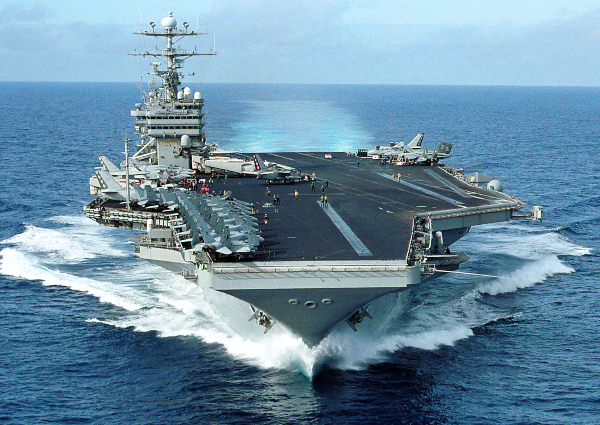
The United States Navy operates a Nuclear Propulsion which consists of enlisted personnel and officers.
The community is specially trained to operate and maintain the nuclear reactors that power submarines and aircraft carriers.
Therefore, the U.S. Navy established the Nuclear Propulsion Officer Candidate Program (NUPOC) to assist eligible students with their studies.
Current undergraduate students that meet high academic standards and prerequisites in majors related to mathematics, engineering, chemistry, and physics are invited to apply.
The Navy NUPOC program delivers financial aid to eligible candidates to finish their undergraduate or graduate degree.
Students may also earn a regular monthly income in addition to funds for tuition thanks to NUPOC.
The amount in financial aid depends on location, but usually ranges between $4,000 to $5,500 per month.
Additionally, the Navy provides a one-time $15,000 bonus for gaining acceptance to NUPOC.
Once students complete their degree they earn a commission in the U.S. Navy and may pursue one of the officer career paths in the Nuclear Propulsion.
The U.S. Navy Nuclear Propulsion – the largest of its kind in the world – currently offers 6 different officer positions.
Students in NUPOC are “active-duty” and paid at the rank of Petty Officer First Class (E-6) or Chief Petty Officer (E-7).
Those that are selected for the Nuclear Propulsion Officer Candidate Program must attend the 12-week Navy Officer Candidate School (OCS).
After Navy OCS, students either complete their Surface Warfare qualification during a division officer tour or attend Nuke School.
All in all, the NUPOC training program is approximately 62 weeks not counting the time needed to complete your undergraduate or graduate studies.
Related Article – Navy Reserve Pay: How much can you earn each month?
2. What does a Nuclear Propulsion Officer do?
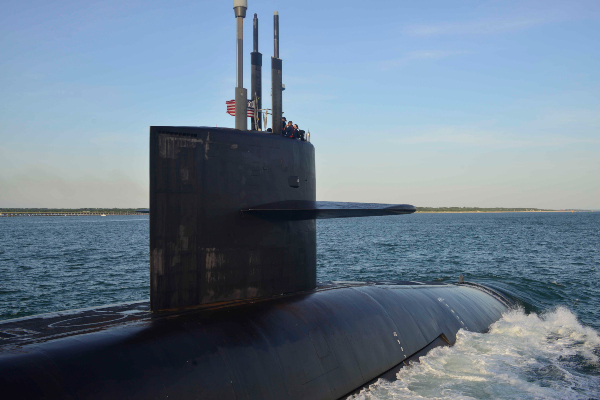
The United States Navy manages the Nuclear Propulsion – which consists of the largest naval force in the world.
There are currently 6 officer titles under NUPOC:
- Surface Warfare Officer
- Nuclear Submarine Officer
- Naval Reactors Engineer
- Nuclear Power Training Unit (NPTU) Instructor
- Nuclear Power School Instructor
Here is a quick breakdown of each Navy Nuclear Propulsion Officer military job:
Surface Warfare Officer
Navy Nuclear Surface Warfare Officers make sure that sailors in their department operate and maintain the complex reactor and power generation systems of aircraft carriers.
Aircraft carriers are at the core of the national defense strategy for the U.S. Navy.
Therefore, the Officer position is extremely important to day-to-day operations.
Surface Warfare Officers serve as the backbone of fleet leadership.
These Officers work on conventional cruisers and destroyers as well as highly prized aircraft carriers.
The list of job duties include:
- Direct personnel operations abroad Navy vessels.
- Manage shipboard vertical launch systems.
- Use high-tech weaponry and advanced technology in ship and battle defense.
- Provide support to Navy expeditionary forces, anti-submarine warfare, surface-to-air warfare, theater missile defense, as well as support and supply missions.
Nuclear Submarine Officer
Navy Nuclear Submarine Officers participate in all aspects of submarine operations.
Therefore, they supervise the reactor plant as well as operate the ship.
Nuclear Submarine Officers may handle any of the following duties:
- Operate a nuclear reactor, power generation, and propulsion systems.
- Maintain onboard weapons systems.
- Manage all life support systems.
- Drive the ship and chart its position in the sea.
- Operate sonar, radar, fire control, communications, and specialized equipment.
Naval Reactors Engineer
Naval Reactors Engineers oversee the entire fleet of nuclear-powered ships in the U.S. Navy.
There are currently more than 80 nuclear-powered ships in the Navy fleet which presents plenty of options.
Navy Reactors Engineers work out of Washington, D.C., and provide technical oversight while managing projects.
The technical areas of Naval Reactors Engineer include:
- Reactor and Fluid Systems Design
- Reactor Physics
- Materials Development
- Testing and Quality Control
- Shielding
- Chemistry and Radiological Controls
Related Article – Navy Jobs List: A List Of All 71 Ratings In The US Navy For 2019
Nuclear Power School Instructor
A Nuclear Power School Instructor teaches enlisted personnel and fellow officers about the fundamentals and theories behind the design and operation of nuclear reactors and power plants.
Navy Nuclear Power School Instructors are essential in preparing service members for work in nuclear power.
The instructors teach at the Naval Nuclear Power School, part of the NUPOC program.
Subjects of instruction include:
- Reactor Theory
- Physics, Chemistry, Algebra, and Calculus
- Heat Transfer and Fluid Dynamics
- Mechanical and Electrical Systems Design
- Radiological Controls and Health Physics
Nuclear Power Training Unit Instructor
Nuclear Power Training Unit (NPTU) Instructors present hands-on training and direct oversight of nuclear-trained officers and enlisted personnel.
The education role in the U.S. Navy is important to the safe operation of shore-based nuclear power plants.
Nuclear Power Training Unit Instructors teach at the Naval Nuclear Power Training Unit course.
The areas of learning include:
- Reactor Start-Up and Shutdown
- Chemistry Analysis and Control
- Maintenance Review and Approval
- Casualty Response
- Reactor Safeguard Systems
3. How to qualify for NUPOC?
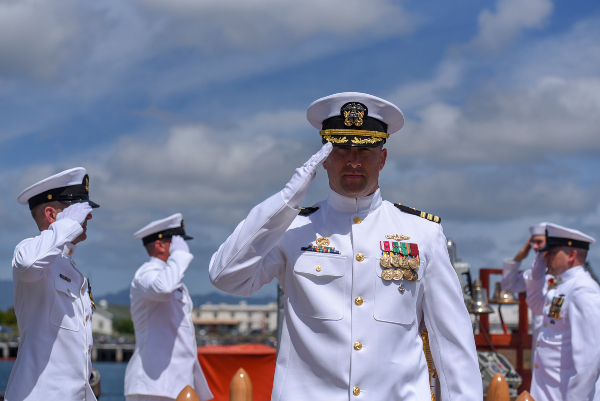
The Navy Nuclear Propulsion Officer Candidate Program (NUPOC) has several prerequisites.
First, you must be a citizen of the United States.
Secondly, you need to be at least 19 years of age and not older than 29 (however, waivers are available up to age 35).
Third, you need to qualify for the NUPOC program physically by meeting fitness weight standards.
Related Article – Navy SECF Rates: ETR, ETV, FT, & STS Career Details
You are expected to refrain from drug use and pass a physical fitness test every six months.
Participants of the Navy NUPOC program must also meet the medical standards for Nuclear Field Duty/Ionizing Radiation.
The Navy Nuclear Propulsion Officer Candidate Program is immensely competitive and will take a lot of effort and persistence.
As a result, the basic requirements for eligibility are stringent for a reason.
Education Requirements
Candidates of the Navy Nuclear Propulsion Officer Candidate Program (NUPOC) must be students at an accredited college or university.
Most candidates are pursuing a BA, BS, or MS in mathematics, engineering, chemistry, or physics.
If you are still in school, you may apply as early as 30 months before completion of your undergraduate degree if you wish to become a Surface Warfare Officer, Nuclear Submarine Officer, and instructor positions.
Meanwhile, you may apply as early as 18 months from the completion of a degree for the Naval Reactors Engineer position.
Students that are in graduate school may join the NUPOC training program as early as 12 months before completion of a degree.
The additional academic requirements of NUPOC include:
- Completion of one academic year of calculus.
- Completion of one year of calculus-based physics.
- GPA of a minimum grade of “B” in all technical courses.
- GPA of a minimum grade of “C” in all technical courses for Nuclear Submarine Officer and Nuclear Surface Warfare Officer candidates.
NOTE: The general qualifications of NUPOC may depend on whether you plan to serve Active Duty or Reserve Duty. You can learn more details about the education requirements of NUPOC, here.
4. How To Ace the NUPOC Interview
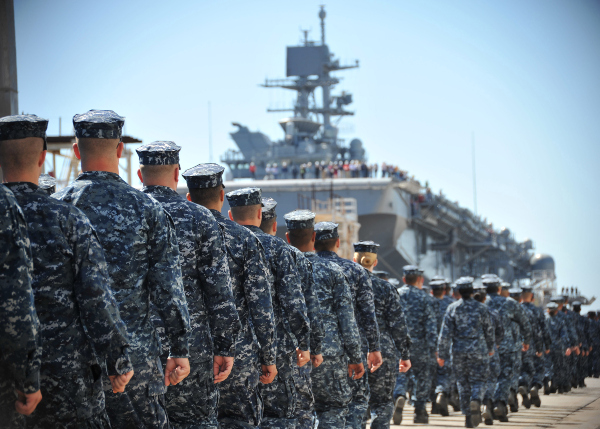
The Nuclear Propulsion Officer Candidate Program (NUPOC) is extremely competitive.
Along with needing to meet all of the prerequisites the U.S. Navy also interviews prospective candidates.
The good news is that you can find study guides and interview prep advice online.
The technical interviews for NUPOC are based on problem-solving.
It is important to note that the NUPOC discussion is not like a traditional interview.
Instead, the Admiral will ask you a couple of questions and judge your critical thinking skills.
The majority of the questions are from calculus and physics.
Former interview participants mention that the interviewer is most interested in your problem-solving process.
The problem-solving questions are related to mathematics and calculus which makes doing a brush up on your studies highly important.
Speaking to a local recruiter can help you prepare for the interview, and may even set up a test run for added preparation.
While it is natural to be nervous, remember that the key to acing the NUPOC interview is remaining poised and precise.
Keep in mind that the job is yours to lose because it’s difficult to even become eligible for the program in the first place.
You’ll do just fine if you relax and focus on the studies that you have learned over the last 4-6 years in college.
5. Frequently Asked Questions (FAQ)
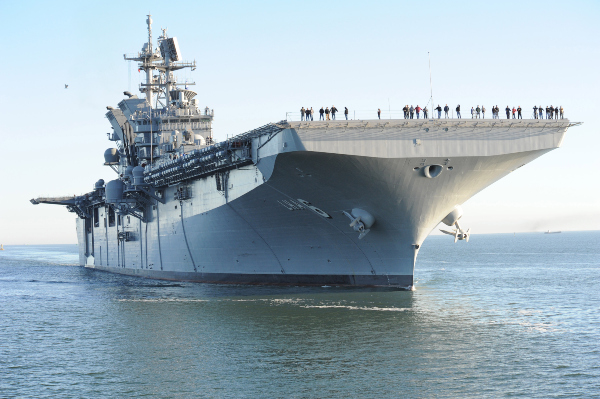
The most commonly asked questions about the Nuclear Propulsion Officer Candidate Program (NUPOC) include:
Related Article – Navy Intelligence Specialist (IS): Career Details
How hard is it to get into NUPOC?
The Nuclear Propulsion Officer Candidate Program is extremely competitive.
However, it is not impossible to qualify for one of the hard-earned positions in the training program.
NUPOC may reward students up to $168,000 in financial aid which makes applying for the program such a big incentive.
In addition to meeting the basic stipulations of the U.S. Navy, you will also need to meet education requirements.
The most important thing to do is to focus on your overall GPA.
The Navy usually looks for students with at least a cumulative GPA of 3.0 and how well you perform in courses related to Nuclear Propulsion (i.e., math).
Training for NUPOC is also demanding even if you don’t have to wear special uniforms or participate in daily military routines.
After graduating from college you’ll spend 12 weeks at Officer Candidate School (OCS).
Navy OCS is in Newport, Rhode Island.
Depending on your Nuclear Propulsion specialty, you’ll either pursue a Surface Warfare qualification through hands-on training aboard a non-nuclear ship or progress to Nuke School.
The initial Nuke School of the U.S. Navy is 24 weeks and based in the classroom.
The studies take place in Charleston, South Carolina.
After completing the classroom portion, students advance to 26 weeks of hands-on training aboard one of the two reactors of the U.S. Navy (either in South Carolina or New York).
How long is a NUPOC contract?
The Nuclear Propulsion Officer Candidate Program contract is eight years.
The Navy expects you to serve as an officer for five years after getting commissioned.
However, the total obligation is eight years when you factor in training.
Notwithstanding, you may balance service to complete eight years by acting in Ready Reserve status.
Can I fail NUPOC?
Navy Officers that fail a training program are treated differently than enlisted personnel.
You can expect some type of reassignment even if you are not sent home.
Those that fail Officer Candidate School (OCS) are traditionally rolled back to a junior OCS class which resumes at week three of training.
Meanwhile, those that struggle to ace the NUPOC interview or other qualifications may work toward resolving the issue before it’s too late.
It is possible that you may have to pay back bonuses you received that were promised if you completed NUPOC.
Will I get paid during NUPOC?
Yes, candidates of the Nuclear Propulsion Officer Candidate Program are officers in training.
Therefore, you not only receive funds to cover your tuition but also living expenses (if applicable).
Most students that qualify for NUPOC have the possibility of having all of their education covered under the financial relief package.
However, the financial reward does mean that you will be committed to the U.S. Navy for close to a decade.
How much do Navy Nuclear officers make?
Students in the Nuclear Propulsion Officer Candidate Program receive pay at the rank of Petty Officer First Class (E-6) or Chief Petty Officer (E-7).
You can see what you expect to earn per month based on Navy rank, here.
Once you graduate from NUPOC you’ll receive a commission as a Navy Officer.
Navy Officers begin receiving pay at the level of O-1 but may earn a higher rank based on performance.
The bare minimum monthly earnings for a Navy Officer is currently a little under $3,300 not counting benefits.
Where will I be stationed after NUPOC?
After you graduate from college and attend Officer Candidate School (OCS) there are a couple of pathways.
Those that wish to serve as Surface Warfare Officers complete their qualification during a division officer tour.
The tour is aboard a non-nuclear ship before you transition to Nuke School.
However, those that wish to serve on submarines are immediately diverted to Nuclear Power School.
Related Article – Navy A School: A list of all 24 locations + training summary
The training includes hands-on work at one of the two prototype reactors in South Carolina or New York.
Graduates of NUPOC may be stationed at many places in the country or across the globe.
The Navy currently operates more than 80 nuclear-powered ships.
Additionally, many Nuclear Propulsion Officers serve the country in Washington, D.C. offering oversight.
Conclusion
The Nuclear Propulsion Officer Candidate Program (NUPOC) is an intriguing opportunity for college students.
If you are currently attending school for a four-year degree you may have your tuition and living expenses covered by the U.S. Navy.
The training program prepares you to become an officer in the Navy while funding your education.
Students that graduate from the NUPOC program get commissioned as Navy Officers and serve managing nuclear reactors.
- Navy Promotion Timeline for Enlisted & Officers - June 19, 2024
- Navy SEAL Training (BUD/S) - June 19, 2024
- Navy Aircraft Carrier Flight Deck Shirt Colors Explained - June 19, 2024

